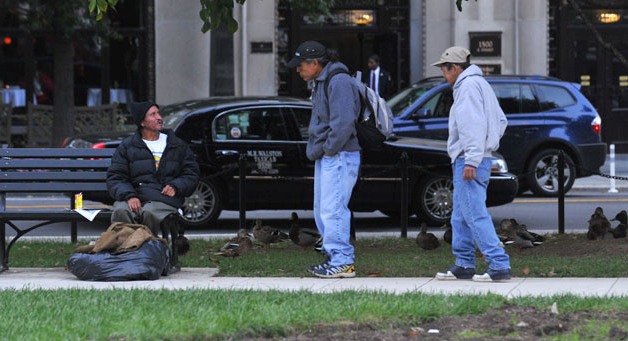Since 2009, aggressive support and prevention initiatives for homeless Veterans have led to a decline of Vets without shelter by 17.2 percent. We’re encouraged by the progress, but we are also reminded that we’re not at the goal of zero yet.
To capitalize on proven initiatives, VA has released $300 million in new grants to more than 300 community agencies in all 50 states (including Washington, DC, Puerto Rico, and the Virgin Islands). The non-profits and community groups will provide support on the ground for as many as 120,000 homeless and at-risk Vets and family members.
Health care services, financial planning, transportation and childcare services, along with a host of additional resources will be provided under the Supportive Services for Veteran Families program.
Strong partnerships are the foundation of a holistic approach to combat Veteran homelessness as we work to assist two different groups of Veterans. With the tremendous support of the Department of Housing and Urban Development (HUD), we’re able to find and identify homeless Veterans and get them shelter under the “housing first” strategy in order to address additional challenges, like mental health care and substance abuse.
The second group of Vets and family members are at-risk of losing their homes. Triggering prevention services is vital to keeping Vets off the streets in the first place, and that’s where our community partners come into play. With local intel and flexible resources, these groups can find and assist at-risk Veterans and family members and get them assistance with rent and utility payments, security deposits and moving costs.
The grants program is moving into its third year after a proven track record of success. Nearly $100 million went to assist Veterans last year, and $1 billion in 2013 for all homeless Veteran programs. Again, prevention is key, and VA offers a host of resources for homeless and at-risk Vets, including health care, career training and education.
Veteran homelessness is a complex issue that demands a robust, comprehensive strategy in response. HUD and VA have worked together at the national level through grant releases and initiatives to keep Veterans off the streets (and make sure they don’t get there in the first place).
But we also understand the unique position our community partners enjoy when they find new and innovative ways to ensure Veterans have roofs over their heads. Their work reminds us of our successes, but also of our failures. We must not stop until the count reaches zero—and stays there.
If you’re a homeless Veteran or family member, or at risk of becoming homeless, please give our help line a call at 1-877-4AID-VET (1-877-424-3838), and visit our homeless Veteran site for more information on housing assistance, health care options, and more.
Topics in this story
More Stories
Summer Sports Clinic is a rehabilitative and educational sporting event for eligible Veterans with a range of disabilities.
Report examines the input of over 7,000 women Veterans: They are happier with VA health care than ever before.
Veterans and caregivers, you can help shape the future eligibility requirements for the VA Caregiver Support program.








3 words: IT’S ABOUT TIME.